Life
Sign up for our newsletter
We summarize the week's scientific breakthroughs every Thursday.
-
 Health & Medicine
Health & MedicineCells in groups may promote cancer’s spread
Cellular gangs, not individuals, form distant tumors from breast malignancies, a new study finds.
-
 Science & Society
Science & SocietyMicrosoft cofounder funds new institute for cell science
The Allen Institute for Cell Science will be housed in the same building in Seattle as the Allen Institute for Brain Science.
-
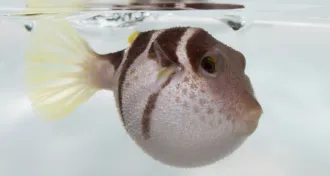 Animals
AnimalsThat puffed-up pufferfish isn’t holding its breath
Pufferfish can breathe just fine even when they puff themselves out with water, a new study finds.
-
 Life
LifeSofter surroundings stifle some chemotherapy drugs
Some anticancer drugs such as Gleevec are less effective when attacking cancer cells grown in soft surroundings.
-
 Earth
EarthMineralogy’s link to ecology makes an Earth twin unlikely
Earth’s unique blend of minerals emerged with the evolution of life, making it extremely unlikely that another planet has Earth’s exact mineral composition.
-
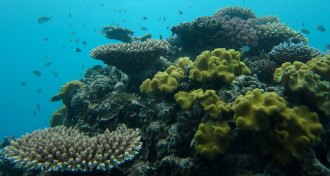 Climate
ClimateResilience protects corals from hurricanes — and climate change
Coral reefs have evolved to be resilient in the face of hurricanes that can devastate human populations. But climate change is reducing the ability of reefs to bounce back from disaster.
-
 Genetics
GeneticsMale smokers more likely to lose Y chromosomes
Male smokers are more likely to lose Y chromosomes in their blood cells than men who have never smoked or those who have kicked the habit.
-
 Life
LifeElectric eels remote-control nervous systems of prey
Electric eels’ high-voltage zaps turn a prey fish against itself, making it freeze in place or betray a hiding place.
By Susan Milius -
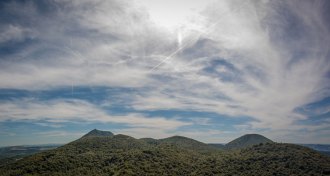 Microbes
MicrobesMicrobes floating among clouds may munch on sugar
Floating in a cloud and noshing sweets while wrapped in a cozy bubble sounds like a pleasant dream. For some lucky bacteria, it may be a reality.
By Beth Mole -
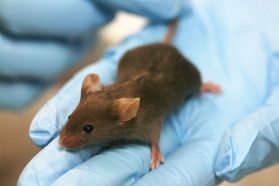 Neuroscience
NeuroscienceMain protein for sensing touch identified in mammals
A close look at how mice respond to touch has helped scientists pinpoint the protein, called Piezo2, that makes mammals feel the sensation.
-

-
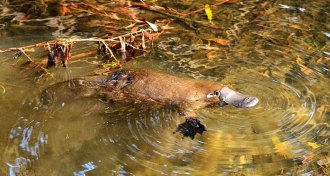 Animals
AnimalsPlatypuses are full of mystery
With duck bills, webbed feet and venomous spikes, platypuses are one of the weirdest animals you’ll ever be lucky enough to see.